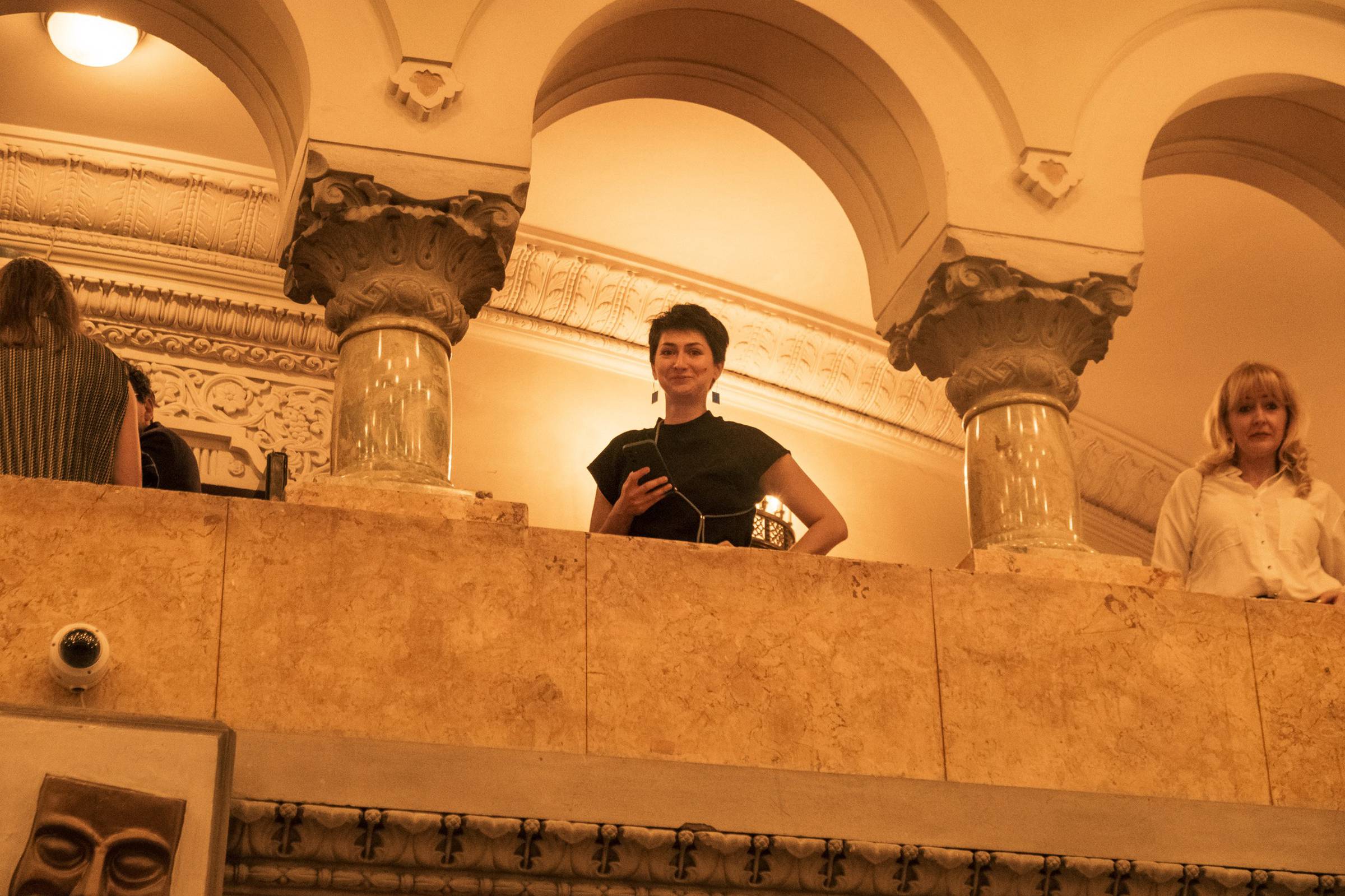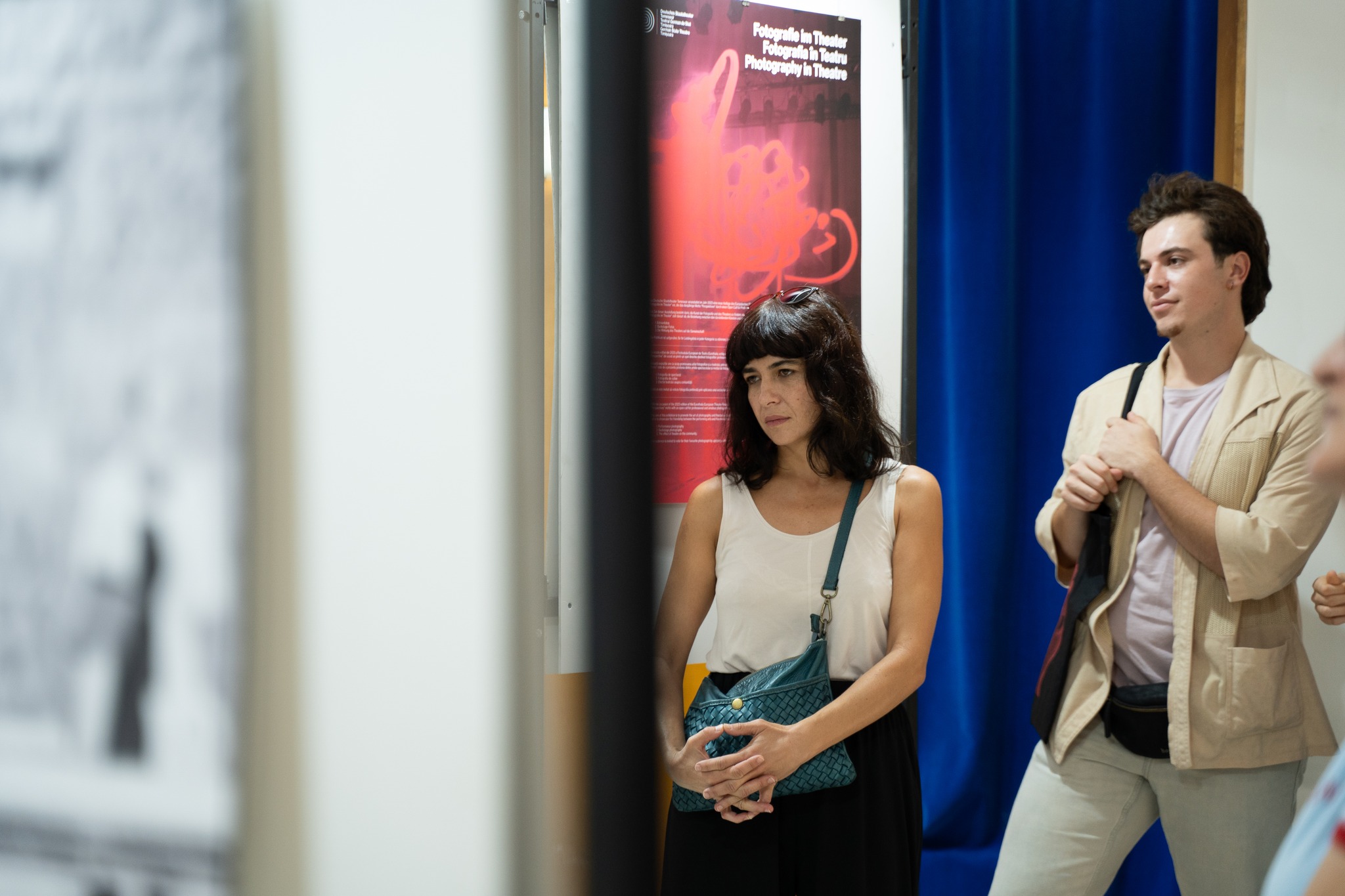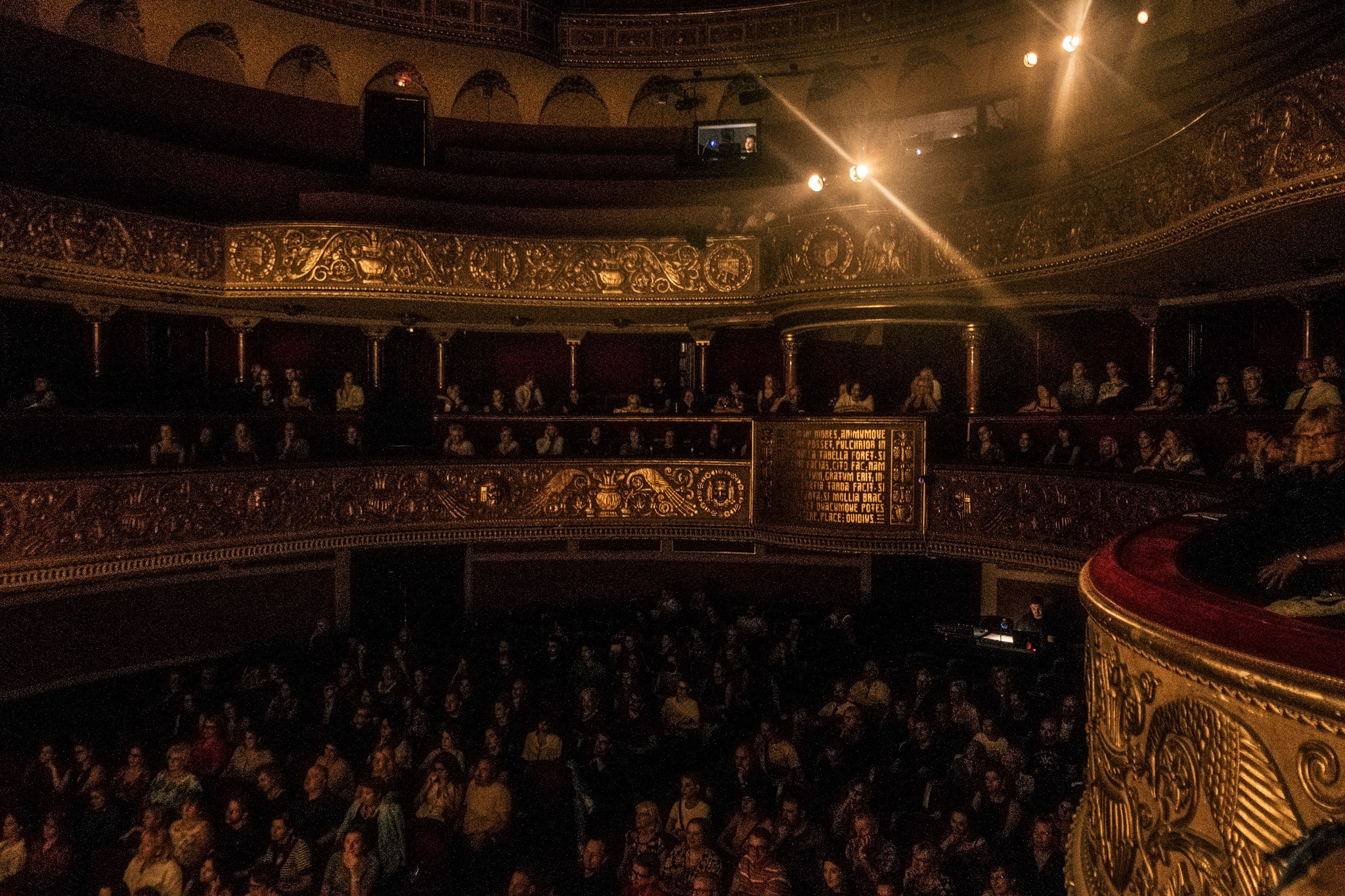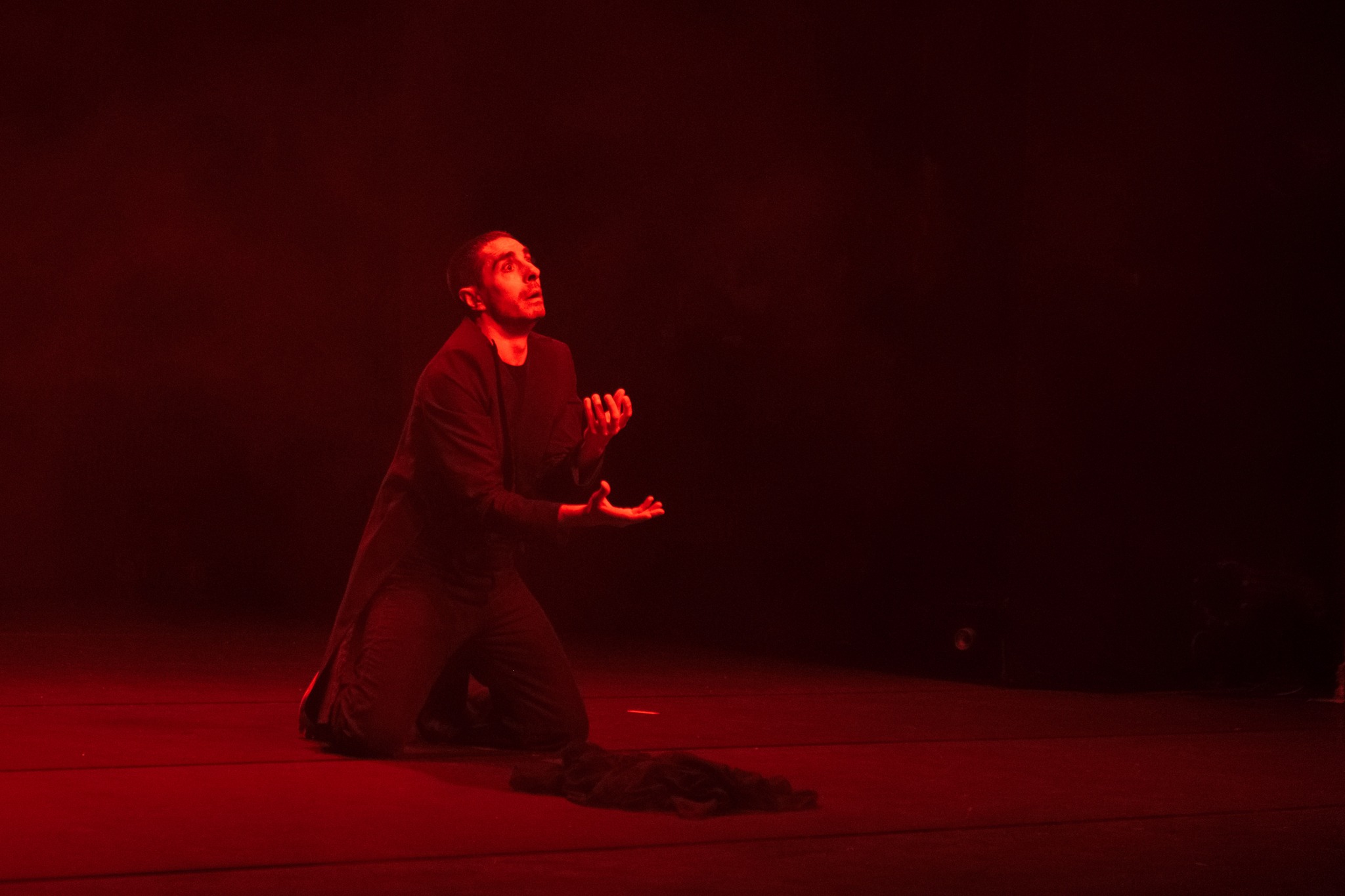
"I Think More Curiosity and Desire for Real Exchange Is Needed" - interview with Oana Vidoni
2 October 2023Interview by Georgea-Elena Ștefan
In the show The Theatre, the
director Pascal Rambert also includes personal episodes from the lives of the
actors. How was the exposure of such moments in front of the public?
I did not expose things I was embarrassed of or feared to show. I told
Pascal about my childhood in the 90s in Romania, about the school and the high
school theatre company, about my experience in the theatre. My desire to play
theatre and the relationship I have with my job were taken over, but the story
was taken in another direction. So, in this role, I did not feel like exposing
myself. But there is a permanent controversy in me, in the sense that yes, I
expose myself, but I am afraid to do so, there is a tension in me in relation
to the job.
A kind of personal battle, where you have to fight yourself?
Yes, I do not like to let myself go, nevertheless I do it every time,
but in a controlled context. In real life, I would not do this, because I do
not necessarily trust that someone would catch me.
Have you been involved with the theatre since you were a child?
Since I was a child, I went to the theatre, I came with the
kindergarten, then with the school. For the first time I came to the theatre in
the 90s. There is a part of personal truth in the text – I used to come and
admire those who are now my colleagues. I really wanted to be part of this
team, which eventually happened.
How did the passion for the theatre, the desire to become an actress,
start?
It started in high school, since I entered the high school theatre
company, in the 10th grade. I liked the energy of the team, I liked
it because it was different from the high school classes, it was an escape area
from what the school was. This energy made me want to do this further on.
How did the collaboration between a French director and a German theatre
go?
It was a
very warm collaboration, Pascal is a very nice and funny person. He knew from
the beginning what he wanted to do. He had a structure and knew how he wanted
to place the moments. Everything went fast and to the point, with a lot of
humour. The rehearsals were relaxed, we did not have dead times, as it often happens other times.
Do you think the theatre is a family for an actor?
I would say yes, for me, the theatre is a family. In addition to the
fact that we spend a lot of time together, more time than at home, I think this
assembly specifically is a little different from other ensembles.
As specified in the description of the show, it is recommended for
persons over 14 years old. What message is sent to a viewer of this age? What
is the difference in perception of a mature audience (one who, for example,
experienced the Revolution or a divorce) compared to a young one?
For a child, the show would tend to become uninteresting, because the
topics discussed are “grown-ups-topics”, there is not much action, there is a
lot of text. The perception of an adult may differ – he knows the company or
not, he is a consistent theatre consumer or not. At some point, the exchanges
of replies are fast, so the language could be a barrier for those who do not
speak German.
What are the advantages of the
local theatre? What about the minuses of the local theatre?
One advantage is the fact that it is funded. However, this can lead to a
painful routine, you simply produce. Many times, I have the feeling that there
are no real stakes, that some repertoires “happen”, without the thought of
moving anything. A big minus is that it is quite difficult to reach both
national and international co-productions. The fact that the ensembles are
fixed makes things quite fixed, as well, the independents rarely reach the
state theatres, so there is no flow. On the other hand, it seems to me that
contemporary dramaturgy is developing, I like that there are all kinds of
artistic and dramatic writing residencies. I would find it important that the
state theatres resort to texts written by Romanians, because they talk about
the Romanian gene. However, this is not common, because it is easier to stage
Shakespeare than to pay the copyright. I would like the theatre to talk about
more concrete things in our society.
What do you think would be the solution to have a collaboration between
the state and the independent theatres?
I think more curiosity and desire for real exchange between different
institutions and cities is needed – I think this would also enrich the local
cultural offer in both areas. I think there are egos that make things not
happen. There are, of course, also problems of legislation, planning, and the
lack of being used to co-productions.
---
“Ph[r]ases”- Creative Formulas is a programme conceived by Diana
Katharina and Daniela Șilindean together with the team of the German State
Theatre Timișoara, dedicated to the theatre chronicle within the Eurothalia
2023 European Theatre Festival, held between 20-30 September 2023, financed by
the National Cultural Program Timișoara - European Capital of Culture in 2023.


